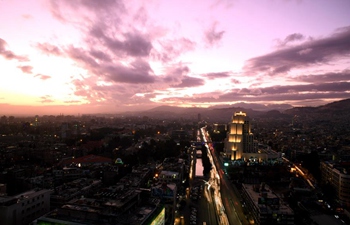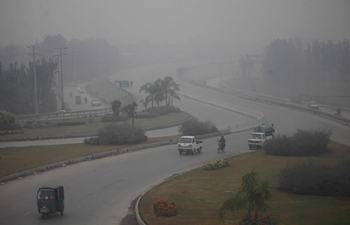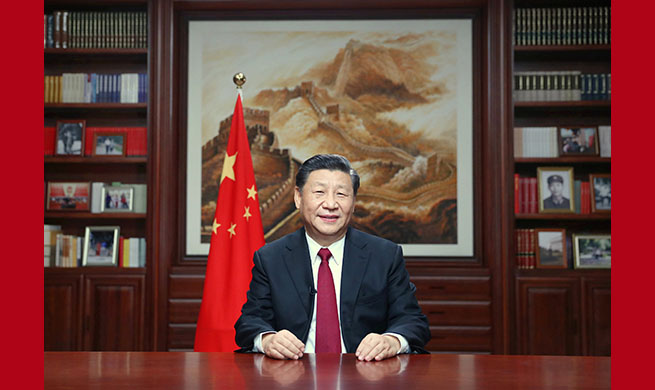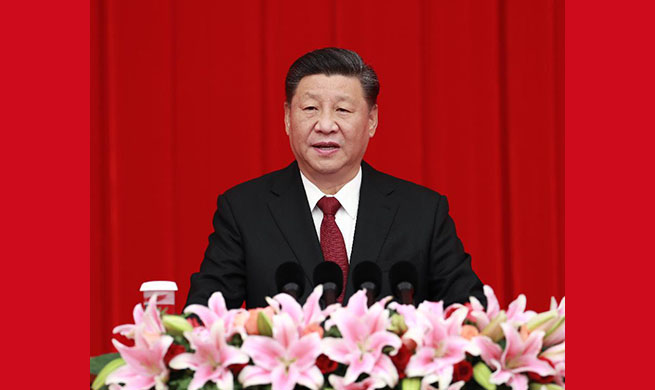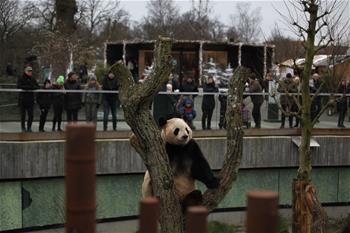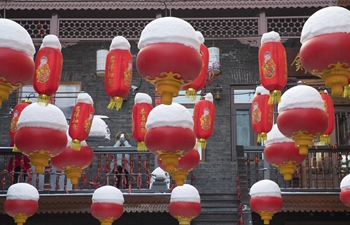SUVA, Jan. 1 (Xinhua) -- The ban on the manufacture, sale, and supply of single-use plastic bags in Fiji is effective from Wednesday, which is a step towards achieving a plastic-free environment that will help Fiji's tourism industry and marine life.
Fiji's Ministry of Economy Head of Climate Change Nilesh Prakash urged Fijians to add the ban on single-use plastic bags to their New Year resolutions.
Fiji Revenue and Customs Service Chief Executive Officer Visvanath Das said the heavy penalties for manufacturing, selling and supplying of single-use plastic bags is seen as a deterrent.
Das said manufacturing fines will be 500,000 Fijian dollars (about 232,000 U.S. dollars) or seven years imprisonment or both. For the sale of plastic, the fine will be 150,000 Fijian dollars (about 69,000 U.S. dollars).
In January 2021, there will be a ban on styrofoam and plastic straws as well.
With the plastic ban enforced on Wednesday, Prakash said some women's groups in Fiji were already taking initiatives to help in the transition process by making cloth shopping bags.
He said manufacturers are already in the transition process, resorting to the production of paper bags to be used when plastic is phased out from Wednesday.
Eight million tonnes of plastic enters the ocean each year and it is estimated that by 2050 there will be more plastic than fish in ocean.
Director General of the Secretariat of the Pacific Regional Environment Program (SPREP) Kosi Latu said at the opening of the Clean Pacific Roundtable 2018 that plastics was now a food security issue.
A study on fish ingestion with samples from the Pacific including Fiji, New Zealand and Samoa showed that 97 percent of all fish species sampled had micro-plastics, 30 percent higher than the global average.
Latu said this is very concerning for the Pacific where fish is the main source for protein, and where fish consumption is at least approximately three or four times higher than the global average.


